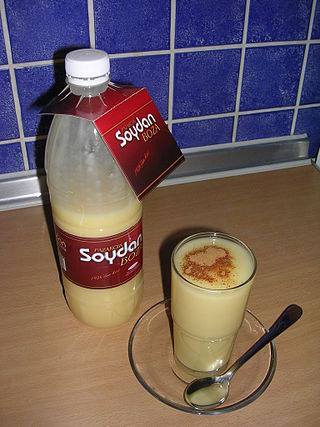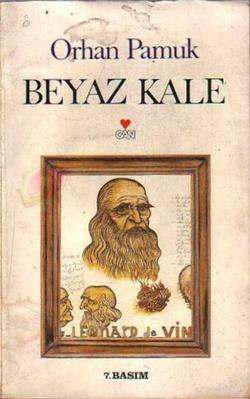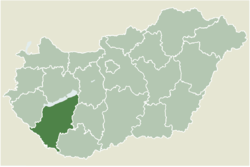
Ferit Orhan Pamuk is a Turkish novelist, screenwriter, academic, and recipient of the 2006 Nobel Prize in Literature. One of Turkey's most prominent novelists, he has sold over 13 million books in 63 languages, making him the country's best-selling writer.

Boza, also bosa, is a fermented beverage originating from Central Asia and made in parts of Turkey, Central Asia, the Caucasus, and North Africa. It is a malt drink made by fermenting various grains: maize (corn) and wheat in Turkey. It's one of the oldest Turkic beverages. It has a thick consistency, a low alcohol content, and a slightly acidic sweet flavor.

Somogy is an administrative county in present Hungary, and also in the former Kingdom of Hungary.

The economic history of the Ottoman Empire covers the period 1299–1923. Trade, agriculture, transportation, and religion make up the Ottoman Empire's economy.

The sultani was an Ottoman gold coin. It was first minted in 1477–8 during the reign of Mehmed II, following the Venetian ducat standard, weighing about 3.45 grams (0.111 ozt). The sultani is the classic Ottoman gold coin also known generically as altın.

My Name Is Red is a 1998 Turkish novel by writer Orhan Pamuk translated into English by Erdağ Göknar in 2001. The novel, concerning miniaturists in the Ottoman Empire of 1591, established Pamuk's international reputation and contributed to his reception of the Nobel Prize in Literature in 2006.
Pamuk is a Turkish word meaning cotton, and may refer to:

The White Castle is a novel by Turkish writer Orhan Pamuk.

The Teşvikiye Mosque is a neo-baroque structure located in the Teşvikiye neighbourhood of Şişli district in Istanbul, Turkey.
Erdağ Göknar is a Turkish-American scholar, literary translator, and poet. He is an Associate Professor of Turkish and Middle Eastern Studies at Duke University and Director of the Duke University Middle East Studies Center.

Şevket Pamuk is a Turkish economist and historian, professor of Economics and Economic History at Boğaziçi (Bosphorus) University. Between 2007 and 2013, Pamuk was chair of Contemporary Turkish Studies at the European Institute, London School of Economics and Political Science.

The Museum of Innocence is a novel by the Turkish Nobel-laureate novelist Orhan Pamuk, published on August 29, 2008. The book, set in Istanbul between 1975 and 1984, is an account of the love story between a wealthy businessman, Kemal, and a poorer distant relative of his, Füsun. Pamuk said he used YouTube to research Turkish music and film while preparing the novel.

The Ovid Prize, established in 2002, is a literary prize awarded annually to an author from any country, in recognition of a body of work. It is named in honour of the Roman poet Ovid, who died in exile in Tomis, on the Black Sea, in Romania. Laureates are awarded 10,000 euros.
Melisa Aslı Yazıcı is a Turkish actress, model and beauty pageant titleholder. Her family is from İskenderun, Hatay, Turkey. She won the title of Miss Turkey 2011 on 2 June 2011. Pamuk accepted the crown from Gizem Memiç, the Miss Turkey 2010 beauty pageant titleholder. She enrolled on a Psychology degree at University of Amsterdam but abandoned it later due to her desire to focus on her modeling career. She also won the title of "Best Promising" in Best Model of Turkey 2009.
Uğur Pamuk is an Azerbaijani international footballer who plays as a midfielder and striker for German club SC Hicret Bielefeld. He is of Turkish descent.

The Museum of Innocence is a museum in a 19th-century house in Istanbul (Çukurcuma) created by novelist Orhan Pamuk as a companion to his novel The Museum of Innocence. The museum and the novel were created in tandem, centred on the stories of two Istanbul families. On 17 May 2014, the museum was announced as the winner of the 2014 European Museum of the Year Award.
Kırık Hayatlar(Broken Lives) is a 1965 Turkish drama film, directed by Halit Refiğ and starring Belgin Doruk, Cüneyt Arkın, and Nebahat Çehre. It is based on the novel with the same name from Halid Ziya Uşaklıgil. Another version TV series was released in 2021, starring Meltem Akçöl, Murat Onuk and Burcu Almeman.

Fonyód is a district in northern part of Somogy County. Fonyód is also the name of the town where the district seat is located. The district is part of the Southern Transdanubia Statistical Region.

The 2006 Nobel Prize in Literature was awarded to the Turkish writer Orhan Pamuk "who in the quest for the melancholic soul of his native city has discovered new symbols for the clash and interlacing of cultures."

















